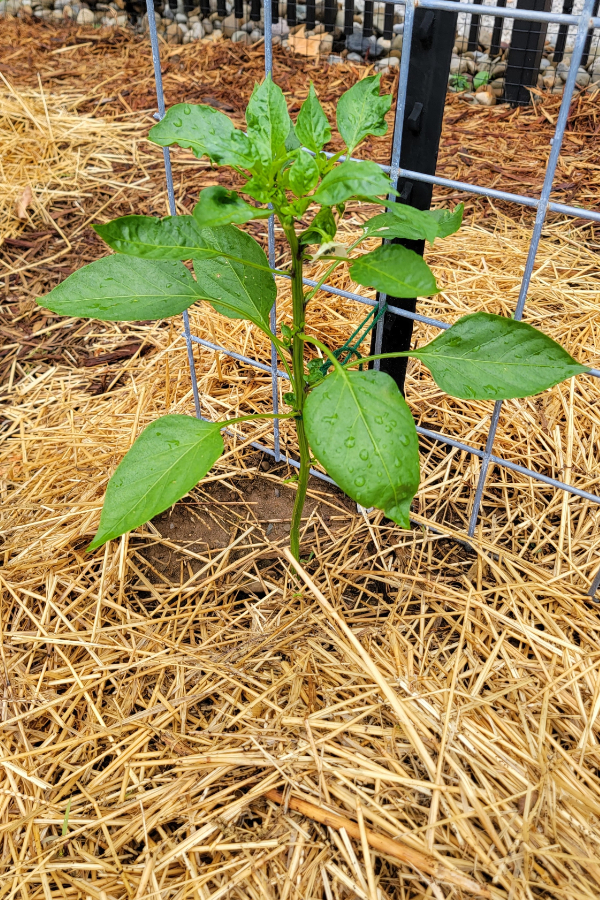Choosing the Best Fertilizers for Peppers: Professional Recommendations
Organic Vs. Synthetic Fertilizers: Which Is Best for Nurturing Healthy And Balanced Pepper Plants?
In the realm of nurturing healthy and balanced pepper plants, the selection between organic and synthetic fertilizers stands as a pivotal decision with far-ranging implications. While both options purpose to supply necessary nutrients to support plant development, the subtleties of their effect on the soil, plant wellness, and the atmosphere spark an argument that echoes throughout the horticulture area. Comprehending the distinct benefits and prospective pitfalls of each plant food type is crucial for pepper cultivators seeking to maximize their yields while maintaining an eco-conscious and sustainable strategy.
Benefits of Organic Plant Foods
Organic fertilizers offer a lasting and environmentally-friendly technique to nourishing pepper plants, supplying important nutrients without the usage of synthetic chemicals. These all-natural fertilizers are obtained from organic sources such as garden compost, manure, bone dish, and algae, promoting dirt health and biodiversity. Unlike artificial plant foods, organic alternatives release nutrients gradually, guaranteeing a steady and well balanced supply for pepper plants to prosper.
One significant benefit of natural fertilizers is their capability to boost dirt framework and water retention. By enhancing soil wellness, organic fertilizers promote helpful microbial task, which aids in nutrient uptake by pepper plants. Furthermore, natural plant foods minimize the threat of chemical run-off, safeguarding water sources from air pollution and safeguarding the atmosphere.
Moreover, natural fertilizers contribute to long-lasting soil fertility by promoting the growth of helpful dirt microorganisms. These organisms help break down natural issue, launching nutrients in a kind that is conveniently available to pepper plants. best fertilizers for peppers. By cultivating a healthy and balanced dirt ecosystem, organic fertilizers support sustainable pepper cultivation practices that benefit both plants and the atmosphere
Downsides of Artificial Fertilizers
Synthetic fertilizers, unlike their organic counterparts, pose various disadvantages when used to nourish pepper plants, influencing both plant wellness and ecological sustainability. One significant disadvantage of synthetic fertilizers is their tendency to leach nutrients from the dirt promptly. This quick leaching can bring about nutrient imbalances in the soil, creating plants to deal with toxicities or deficiencies. Additionally, artificial plant foods can hurt advantageous soil organisms, such as earthworms and beneficial microorganisms, interfering with the dirt community's balance.
Furthermore, the overuse of artificial fertilizers can add to water pollution. Excess plant foods not soaked up by plants can remove right into water bodies, resulting in eutrophication, where algae blossoms diminish oxygen levels in the water, harming water life. Additionally, artificial fertilizers are generally stemmed from non-renewable resources, such as nonrenewable fuel sources, adding to carbon exhausts and environmental destruction during their manufacturing.
Nutrient Absorption Contrast
Effective nutrient absorption plays a crucial duty in the overall wellness and growth of pepper plants. When comparing synthetic and natural fertilizers in terms of nutrient absorption, organic fertilizers have the benefit of giving a much more well balanced and slow-release resource of nutrients (best fertilizers for peppers). Organic fertilizers consist of a selection of macro and micronutrients that are not only helpful for the plants but likewise advertise healthy and balanced soil microbial activity, which helps in nutrient uptake. On the various other hand, artificial fertilizers frequently give a fast release of nutrients, which can result in leaching and overflow, causing reduced nutrient absorption prices by the plants.
In addition, natural plant foods boost dirt framework and water retention ability, permitting pepper plants to accessibility nutrients a lot more successfully. This improved soil high quality assists in root advancement, making it possible click reference for far better nutrient absorption. Artificial fertilizers, although at first improving plant development because of their high nutrient concentrations, may prevent long-lasting nutrient absorption by degrading soil health with time.
Ecological Effect Considerations

On the various other hand, synthetic plant foods, although typically even more immediately readily available and concentrated to plants, can have destructive impacts on the environment otherwise applied appropriately (best fertilizers for peppers). Their production calls for high power inputs, bring about greenhouse gas discharges and contributing to climate adjustment. The runoff of excess synthetic fertilizers can infect water sources, leading to eutrophication and harming water environments.
Best Plant Food Practices for Peppers
To achieve this, it is important to follow best fertilizer techniques customized to the details demands of pepper plants. One critical technique Bonuses is to do a soil test before using any type of plant foods.
An additional important practice is to fertilize pepper plants at the correct time. Typically, peppers profit from obtaining fertilizer at planting and after that once more when they begin to blossom. Over-fertilizing can bring about nutrition discrepancies and harm the plants, so it is vital to adhere to suggested application rates.
Additionally, picking a balanced fertilizer with an NPK proportion that fits pepper plants' requirements is basic. Organic fertilizers, such as compost or manure, can be superb options as they release nutrients gradually and improve dirt structure over time. Nonetheless, synthetic fertilizers can supply a quick nutrient increase when needed. Ultimately, incorporating synthetic and natural fertilizers judiciously can assist nurture healthy and balanced pepper plants while decreasing ecological effect.
Conclusion

Organic fertilizers use a lasting and environmentally-friendly technique to beneficial pepper plants, providing vital nutrients without the usage of synthetic chemicals. Unlike synthetic fertilizers, natural alternatives release nutrients slowly, making sure a balanced and consistent supply for pepper plants to grow.
Synthetic fertilizers, in contrast to their organic counterparts, present numerous disadvantages when utilized to nourish pepper plants, affecting both plant wellness and ecological sustainability. When contrasting organic and synthetic fertilizers in terms of nutrient absorption, organic fertilizers have the advantage of supplying a much more well balanced and slow-release resource of nutrients.In addition, natural plant foods boost dirt framework and water you can try these out retention ability, permitting pepper plants to accessibility nutrients more efficiently.